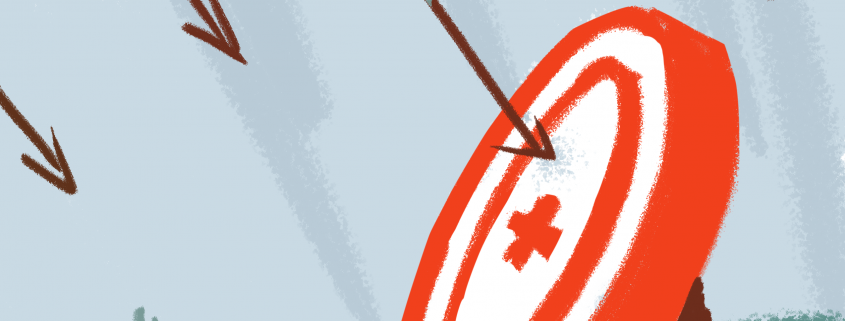USC’s indecisive coronavirus response needs clarity
USC’s inconsistent stance toward its coronavirus policies is dangerous for the student population. To address this indecisiveness, USC should reexamine whether or not these policies exist for optics or to have a legitimate impact.
For the tens of thousands of freshmen and sophomores who stepped foot onto USC’s campus for the first time in mid-August, USC has simultaneously embodied nearly draconian and extremely relaxed safety measures, which can often lead to confusion and misunderstanding surrounding USC’s policies.
USC’s dorms, for example, have a strict “No Guest” policy, presumably due to the nature of coronavirus and the need to limit in-person interaction. However, USC itself has hosted multiple events that seem to spit in the face of its own coronavirus regulations — from convocation, made up of hundreds of tightly-filled rows of students, to the Welcome Week concert, with thousands of students jam-packed into McCarthy Quad.
Although students may have masked up for convocation and were told to do so for the Welcome Week concert, videos on Instagram show crowds with masks pulled down at the USC Concerts event. These types of discrepancies, while not entirely USC’s fault, point out the University’s problems with coronavirus-related policies.
USC’s gym policies have also received ire for their inefficiency, seemingly enacted with little purpose or practicality. Currently, it is extremely difficult to reserve spots in the two gyms at University Park Campus — Lyon Recreation Center and the USC Village Fitness Center — with students often competing with one another to reserve a spot exactly 48 hours in advance.
The University enacts these policies to presumably maintain coronavirus regulations, but inside the gym, it’s clear these restrictions are only to be taken at face value. Even with gym goers wearing masks, the gyms often become crowded. As the only active gym restriction seems to be the mask mandate, it calls into question why the gyms need to use a reservation system that only inconveniences its students rather than ensure their safety.
The most egregious of faults is the way USC approaches football games, no doubt a source of immense profit for the University. On Aug. 25, athletic director Mike Bohn emailed the student body, notifying students that there would be no tailgates held on campus for the Sept. 4 game due to “a responsibility to prioritize the health and safety of our students, faculty, and staff.”
However, the same email also stated that “this change has only been made for the first game,” presumably so USC could reassess and potentially allow tailgates on campus in the future. The actual game, however, was held with minimal safety-related restrictions, with only a paltry reminder that masks were required. More photos, however, show many students without masks. How can USC cancel tailgates in the name of coronavirus restrictions, yet allow the actual game to continue at full capacity with minimal restrictions being put in place? USC also announced on Sept. 8 that the next game would feature tailgates (albeit on a limited scale), a move that will no doubt attract attention over coronavirus statistics in the coming weeks.
Through all of these problems, USC’s common solution is Trojan Check, the new program that allows students to quickly check whether or not they suffer from any coronavirus symptoms to be allowed on campus.
It is a simple proposal, but it doesn’t seem to be extremely effective when considering the fact that it is extremely easy to lie on Trojan Check, and the campus entryways have simply waved students into campus when a large number of them arrive on campus at once. One post on USC’s subreddit “r/USC” shows students attempting to “speedrun” the Trojan Check, with one user writing code to automatically fill it out. USC’s reliance on Trojan Check, while initially well-guided, ultimately falls flat, as the program itself can easily be manipulated by simply lying.
The solution, unfortunately, is not one that easily comes to mind; any system that requires “honor” can easily be bypassed. However, devoting time to revisiting Trojan Check could well be worth USC’s time, as its place in the University ecosystem exists as nothing more than an inconvenience as it currently functions.
Whether its policies pertain to housing, workouts, football games, tailgates or more, USC follows a consistent theme of only implementing coronavirus-based restrictions to simply save face without actually going through the efforts of ensuring all students follow through.
It must be noted that, despite the many grievances listed above, it is not as though the current methods USC is utilizing to combat the coronavirus aren’t completely working; in fact, USC has reported promising testing results, with the most recent numbers revealing that the positivity rate was only 0.2% for the third week of college. However, the road to full normalcy cannot be paved without USC first reevaluating their guidelines.
Ultimately, these coronavirus restrictions only inconvenience students, while USC overlooks larger issues, such as massive crowds. As we go further into the school year, it’s absolutely imperative that USC reexamines its own safety policies and just how useful they are.


